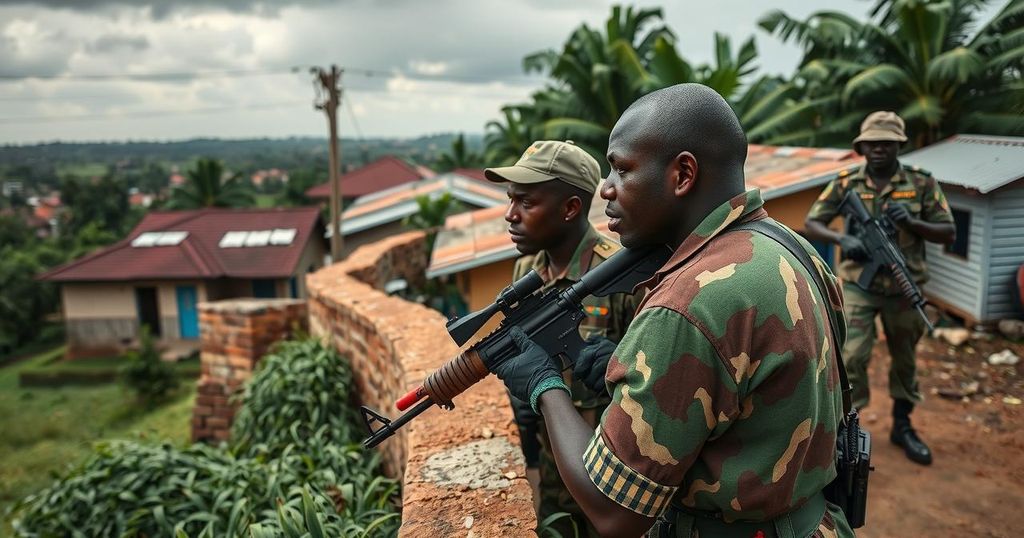Rwandan-backed rebels from M23 have captured Masisi in eastern DRC, marking their second town takeover in two days amidst rising conflict and humanitarian crises. The situation worsens as mediation efforts between DRC and Rwanda stall, raising concerns about security and displacement in the region.
Reports indicate that Rwandan-backed rebel forces have captured the town of Masisi in the eastern Democratic Republic of Congo (DRC), marking the second town seized by the M23 group in just two days within the mineral-rich North Kivu province. Since 2021, the M23 has gained control over significant portions of eastern DRC, leading to a humanitarian crisis as hundreds of thousands of individuals have been displaced. Efforts by Angola to mediate discussions between Congolese President Félix Tshisekedi and Rwandan President Paul Kagame have faltered after negotiations collapsed last month.
Alexis Bahunga, a member of the North Kivu provincial assembly, expressed his concern, stating that the capture of Masisi has plunged the region into a dire humanitarian situation. Local residents reported M23 leaders holding community meetings to assure citizens of their intentions to liberate the country. The Congolese authorities have yet to comment publicly on the loss of this significant town, which holds a population of approximately 40,000 and serves as the administrative capital of the Masisi territory, located around 80 kilometers north of Goma, the provincial capital.
On the preceding Friday, the M23 also seized control of the nearby town of Katale. Concerns had previously circulated regarding the potential resurgence of M23 forces advancing towards Goma, which houses around two million residents, following a lull in conflict activities until December. In July, Rwandan officials acknowledged a UN report estimating the presence of around 4,000 Rwandan soldiers assisting the M23 in DRC, while maintaining that the Congolese government had not sufficiently addressed the longstanding conflicts in the eastern region. Rwanda has alleged that the DRC authorities are collaborating with individuals responsible for the 1994 Rwandan genocide.
Originating as an offshoot of another rebel group, the M23 was established in 2012 with claims centered on the protection of the Tutsi community in eastern DRC, which has faced historical persecution. Critics of Rwanda allege that the country exploits the M23 to gain access to and plunder the mineral wealth of eastern DRC, including gold, cobalt, and tantalum—key materials for the production of mobile phones and electric car batteries. Recently, DRC announced a lawsuit against Apple concerning the use of so-called “blood minerals,” prompting the tech giant to publicly declare it had ceased procurement from the country.
The Democratic Republic of Congo has faced ongoing instability and conflict, particularly in its eastern regions, marked by the actions of various rebel groups, including the M23. Formed in 2012, M23 has frequently been accused of being supported by Rwanda, which claims to act in defense of the Tutsi population facing persecution. Compounded by rich mineral resources, the region has been a magnet for exploitation and violence. International efforts to mediate the conflict have faced challenges and often do not result in sustained peace. The humanitarian situation remains critical, with large numbers of civilians displaced due to the ongoing turmoil.
In summary, the recent capture of Masisi by Rwandan-backed M23 rebels underscores the deteriorating security and humanitarian conditions in eastern DRC. The ongoing conflict reflects deeper regional tensions and the complex interplay of local and international politics. As negotiations falter and violence escalates, the plight of affected civilians continues to worsen, drawing urgent attention to the need for a sustained resolution to the underlying issues of conflict.
Original Source: www.bbc.com






